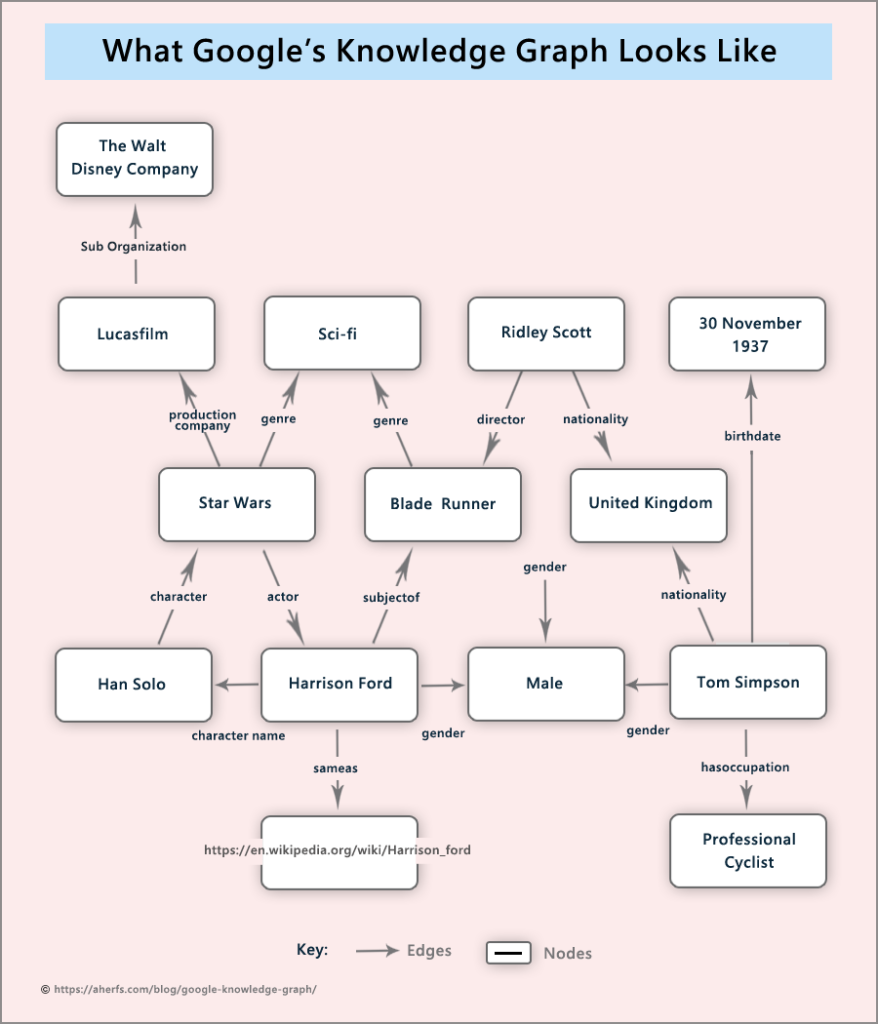Assuming you’re in pursuit of an effective strategy to augment traffic to your website via search engines, schema markup can significantly enhance your website’s visibility, consequently leading to more clicks. We will delve into the fundamentals of schema markup and illuminate its pivotal role in search engine optimization. Prepare to uncover how schema markup can turbocharge your website’s search performance and attract a larger audience. Including schema markup for SEO is essential in optimizing your online presence and driving more traffic to your site.
What is Schema Markup?
Schema markup is similar to unique code that you may add to your website’s HTML. It’s also known as semantic vocabulary or microdata. This code’s goal is to assist search engines in better understanding the content of your website. When search engines have a better grasp of your material, they may deliver more detailed and valuable results to searching individuals.
Incorporating schema markup into your website aids in the generation of a “rich snippet.” A “rich snippet” is essentially an elaborate description of your page displayed on the search engine results page (SERP). It functions like an advanced preview, offering viewers supplementary information about your content. We will delve deeper into the concept of rich snippets later.
The establishment of Schema.org was a collaborative venture involving numerous search engines, such as Google, Bing, Yandex, and Yahoo. They joined forces to create a unified language for structured data. By applying schema markup in line with the guidelines stipulated by Schema.org, you can ensure your data is accurately interpreted and suitably displayed across various search engines.
Your SEO services provider will implement it on your website to boost visibility on search engines. Through the integration of structured data, these services assist client websites in interacting more proficiently with search engines, thus potentially amplifying their search performance and drawing more traffic.
How Does Structured Data in Schema Markup Work?
Structured data is a technique that organizes information on a webpage in a manner that facilitates improved interpretation and categorization by search engines. This involves pairing names and values to ease the indexing and classification of your data by search engines. Essentially, it assists search engines like Google in better understanding your website’s content.
Let’s discuss microdata now. Being compatible with HTML5, the most popular markup language on the internet, it is a particular type of structured data. By including extra information in your HTML code through microdata, you may provide search engines with more context and significance.
The most reliable source for microdata is schema.org. It provides a set of generally used definitions for microdata tags. These tags are intended to provide details about particular categories, such as:
- Artistic creations
- Occasions
- Medical entities
- Groups
- People
- Locations
Schema markup offers a standardized method for describing and organizing this kind of data.
Visit Schema.org to learn more about the entire set of schema tags and how to utilize them. It’s a valuable tool for adding structured data to your website. Schema markup makes it easier for search engines to grasp the content of your webpage, resulting in more relevant search results and better visibility.
Using structured data for video material might be advantageous because it gives search engines more information. When employing AMP (accelerated mobile pages) technology, search engines can leverage your data to display videos in search results or even in top stories carousels, for instance, if you give video descriptions, thumbnail URLs, upload date, and duration.
Also Read: What Is On-Page SEO? And How to Do Onpage SEO
Product schema implementation for e-commerce websites can significantly increase their exposure in search engine results pages (SERPs).
- Products’ names
- Brands
- Descriptions
- Reviews
- Photos
- Prices
- Availability
are just a few of the details that websites can give search engines by employing product schema. With this rich data, search engines can better comprehend and convey product information, providing users with a crystal-clear visual representation of a specific product directly in the search results.

Take a look at the image above! It’s an excellent example of how a product schema might be employed on an ecommerce website.
Importance of Schema Markup for SEO?
Have you ever questioned how Google interprets website content to show pertinent information in search results? Well, schema markup is one method it uses to accomplish this. Using schema markup on your website makes it easier for Google to understand the structure and content of your page.
Consider using schema markup to categorize and arrange the content on your website. By including particular tags or codes in your HTML, you may provide Google with more information about what the content is meant to be. This enables Google to identify important details and present them visually pleasingly.
Rich Snippets
Using schema markup for SEO can make your website appear as a rich snippet in Google’s search results, which is one of its advantages. A rich snippet is an improved search result that goes beyond the standard title and description. It may also provide extra features like ratings, reviews, pictures, and other pertinent information.
To demonstrate this, imagine that you are looking for a recipe, say a mouthwatering pizza recipe. You might note that some of the results have extra information visible when you type “taco recipe” into the search bar, like the ingredients, ratings, and even delicious images of the finished tacos.

The data for these rich snippets are frequently derived from structured data present in the HTML of the webpage. Google is more likely to create rich snippets for your content in search results when you utilize schema markup to give structured data on your website.
A rich snippet may significantly increase the visibility of your website and generate more organic clicks. Rich snippets are more eye-catching and informational than ordinary search results, which can persuade people to go to your webpage.
By utilizing schema markup and providing Google with the relevant data, you boost the likelihood of your webpage showing as a rich snippet in search results, granting it a prominent position and bringing more visitors to your site.
Knowledge Graph
Like a hidden ingredient, schema markup helps Google better comprehend your website. It’s a way to enhance the code of your website so that search engines can better understand the nature of its content. And what’s this? When you employ schema markup, Google loves it!

Say you manufacture a well-known line of footwear. Wouldn’t it be fantastic if a particular information box, known as a knowledge panel, emerged with all the crucial information about your company when someone searched for it on Google? Being a part of Google’s Knowledge Graph can help you with that.
Consider the knowledge panel as a tiny representation of your company that may be found immediately on Google’s search results page. Based on Google’s knowledge of the web, it functions as a small cheat sheet that displays all the essential details about your business.
For instance, the knowledge panel for PageTraffic appears as follows:

An excellent benefit of having a knowledge panel is that it gets your brand in front of customers actively looking for it. It’s a fantastic chance to present all you want them to know in one location. Additionally, it aids Google in better comprehending your brand, enabling them to deliver more relevant results when users search for associated terms.
It’s crucial to note that employing schema markup does not guarantee that your website will rank higher in search results. It does, however, improve the visibility of your brand and content.
People are more inclined to click on your website if it’s displayed with a knowledge panel or rich snippet. This behavior is observed by Google, which recognizes that searchers are engaging with your website. This signals to Google that your website is a valuable result for specific searches, thus boosting your overall brand visibility.
You can experiment with various markup tag types on different pages of your website to get the most out of schema markup. You may then observe how it impacts your search traffic and rankings. To assist you in creating the required code for your website, Google even offers a helpful tool called the Structured Data Markup Helper.
Therefore, by utilizing schema markup, you essentially aid Google in comprehending your material better, raise your chances of showing up in a knowledge panel, and ultimately increase the visibility of your business in search results. It’s similar to giving Google inside information about your website so they can present it to the appropriate audience at the proper time.
Also Read: Entity SEO – A Comprehensive Guide to SEO Entity
How to Improve SEO with Schema Markup
By utilizing schema markup, you can boost your SEO by doing the following:
- Recognize Schema Markup: Schema markup is a structured data format that aids in search engines’ comprehension of the material on your website. Learn about the various kinds of schema markup available and how they apply to the content of your website.
- Find Useful Schema Types: Choose the schema types best suited for your website and the particular content you want to mark up. Articles, items, reviews, events, and local businesses are examples of common schema types.
- Implement schema markup by including it in the HTML code of your website. The proper schema.org tags can be manually added to your HTML, or you can use one of the many plugins or generators for schema markup that are available for popular content management systems (CMS) like WordPress.
- Applying schema markup to your most crucial web pages, such as your homepage, product pages, and contact page, should be your priority. This will guarantee that search engines can gather and prominently show pertinent information in search results.
- Use Relevant Schema Properties: Use relevant properties within each schema type to provide more specific details on your material. Consider including attributes like name, description, price, availability, and reviews when marking up a product, for instance.
- Monitor and Test: Use resources like Google’s Structured Data Testing Tool or Rich Results Test to check how well your schema markup is frequently working. This will enable you to spot any problems or mistakes and guarantee that your markup is applied correctly.
- Utilize Rich Snippets: Schema markup can make it possible for rich snippets, which give your search results listings a boost by adding extra details like star ratings, reviews, prices, and photographs. Rich snippets can increase click-through rates and overall SEO effectiveness by supplying more context and eye-catching graphics.
- Keep track of schema.org updates and search engine rules to ensure your markup is current and compliant. New schema types and characteristics can become accessible as technology advances, giving you more chances to improve the visibility of your website.
Remember that schema markup is only one component of a complete optimization approach, even though it can help your website’s SEO. Use schema markup with additional best practices like excellent content, responsive design, optimal metadata, and link building for the best results.
Conclusion
In simple terms, schema markup is pivotal for SEO. It functions as a tool that helps search engines understand the essence of your website. By implementing schema markup, you can provide search engines with structured data that clearly delineates what your content signifies.
This is significant because it allows search engines to present your website in search results in an informative and attractive manner. Moreover, it opens up avenues for features such as knowledge graphs and voice search. Enhance your website’s visibility, attract more relevant traffic, and improve the user experience by leveraging schema markup. Integrating schema markup into your SEO strategy is critical if you aspire for your website to achieve higher rankings, garner more organic traffic, and boost conversions.
FAQs
How does Schema Markup work?
The HTML code of your website must contain a specified set of tags or properties to apply Schema Markup. These tags give your webpage’s content different contexts, such as the type of material (an article, product, or event), important details (such as the name, description, and price), and connections between other sections. Search engines can then utilize the structured data to improve their comprehension of the information on your page.
Why is Schema Markup important for SEO?
Schema Markup helps search engines understand your site’s content better, which can lead to improved visibility and higher ranking in search results. It can also improve click-through rates by displaying rich snippets like reviews and ratings.
Does Schema Markup guarantee higher search rankings?
While Schema Markup can significantly enhance the way your page is displayed in search results, it doesn’t guarantee a higher ranking. SEO involves multiple factors, and Schema Markup is just one of them.
Is Schema Markup necessary for every website?
While it’s not absolutely necessary for every website, implementing Schema Markup can significantly enhance your SEO efforts. It’s particularly beneficial for sites with specific types of content, like recipes, events, products, and reviews.
























